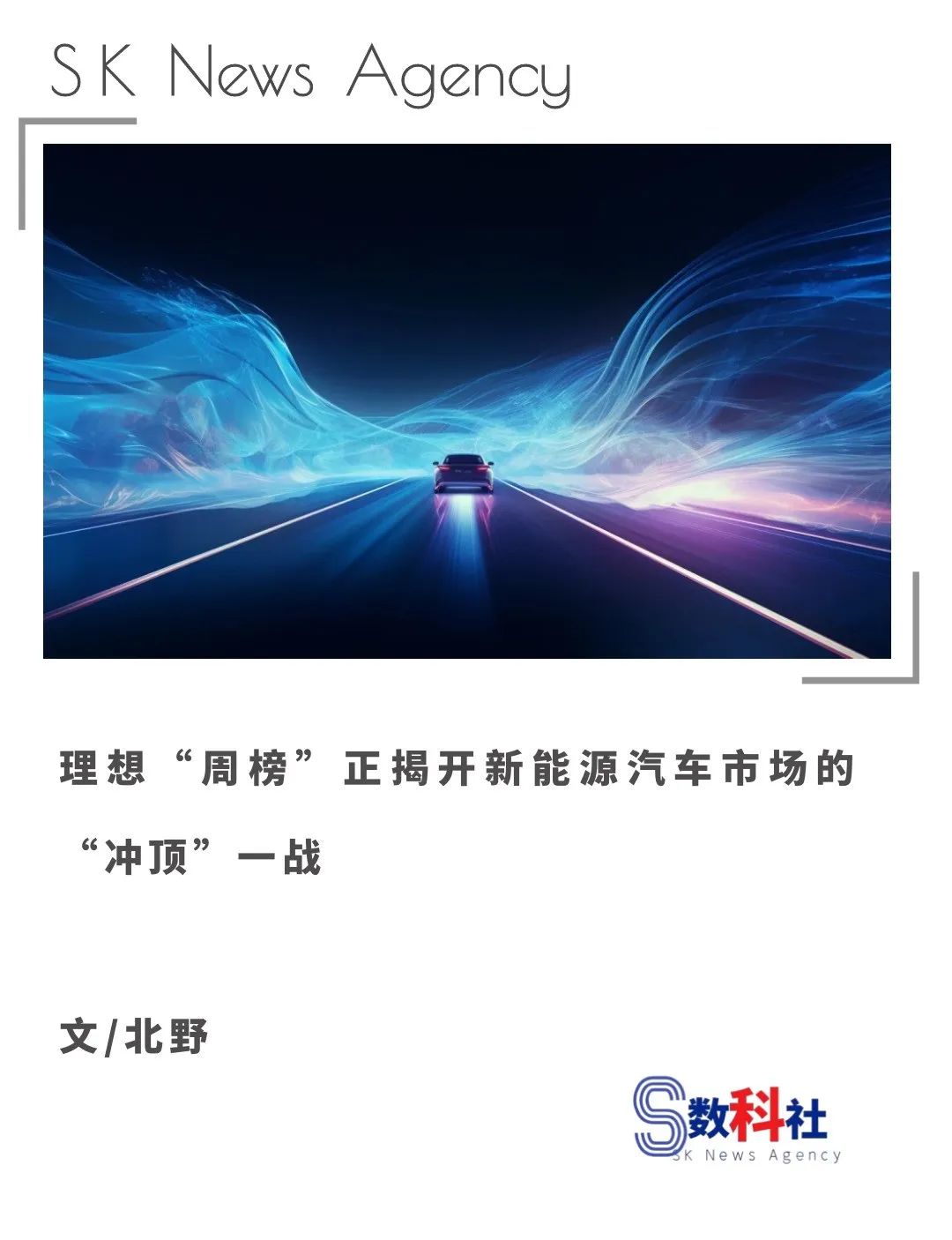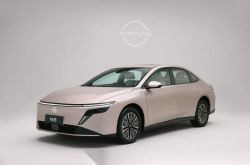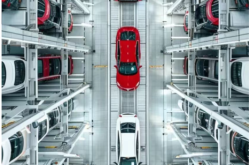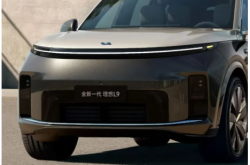"The boat of the 'Three Brothers of Car Making' has long since capsized
![]() 08/28 2024
08/28 2024
![]() 547
547

Despite criticism from industry peers, Li Xiang has shown no signs of backing down.
Amidst the controversy surrounding the 'Weekly Ranking,' NIO continued to release its latest weekly sales rankings as usual. According to the rankings, in the 33rd week of 2024, NIO sold 10,700 vehicles, ranking first in sales among new energy vehicle brands in the Chinese market for the 17th consecutive week.
However, on this ranking, Xpeng and NIO, once known as the 'Three Brothers of Car Making,' have again fallen behind. NIO ranked fifth with weekly sales of 3,300 vehicles, while Xpeng ranked eighth with weekly sales of 2,300 vehicles.
Over the past month, NIO's weekly ranking has been questioned and opposed by many automakers, with NIO and Xpeng voicing particularly strong opposition. It seems that the 'boat of friendship' has capsized.
In fact, with the increasingly fierce competition among automakers in recent years, the 'boat of the Three Brothers of Car Making' has long since capsized, and NIO's 'weekly ranking' is revealing the intense competition in the new energy vehicle market.
01 NIO's Opposition Falls on Deaf Ears
Recently, the game 'Black Myth: Wukong' gained popularity online, and netizens noticed that the character 'Jinchi Elder' bore a striking resemblance to NIO's founder, Li Bin. Many rushed to Li Bin's Weibo account to leave comments with memes, to which Li Bin responded helplessly, 'Who did I offend?' Amidst the controversy surrounding NIO's weekly ranking, Li Bin was equally helpless.
According to reports, NIO was the first automaker to publicly oppose and refuse to participate in the weekly ranking. As early as July 27th, after NIO's Innovation Day event, Li Bin expressed his opposition to the weekly ranking in an interview with the media, saying, 'Can we stop publishing the weekly ranking? If NIO becomes number one in sales, we'll never publish it.'
Subsequently, NIO's co-founder and president, Qin Lihong, and NIO's assistant vice president of brand and communications, Ma Lin, also expressed their opposition. Qin Lihong angrily stated, 'Don't involve NIO,' and questioned the accuracy of the weekly sales data, noting that fewer than ten people within the company have access to such data. Ma Lin directly called on Li Xiang to stop the weekly ranking on Weibo, stating, 'Don't engage in low-level competition.' This view quickly resonated within the industry, with Geely, Xpeng, and other automakers either directly or indirectly expressing their support, while some even launched counterattacks using similar rankings.
What has drawn attention is why NIO, Xpeng, and Li Auto, representatives of new energy vehicle makers, who have shared the darkest moments of their startups and maintained friendly exchanges among their founders, have now become opponents over the weekly ranking.
This may be related to the market and performance pressures currently faced by NIO. Data shows that NIO delivered 107,924 vehicles in the first seven months of 2024, an increase of over 43% year-on-year, representing impressive sales performance. However, this achievement was made against the backdrop of an industry-wide low gross margin and intense price competition, indicating the significant market pressure NIO has had to endure to achieve sales growth.
In fact, NIO's sales anxiety was already evident last year. Data shows that NIO delivered approximately 160,000 new vehicles in 2023, an increase of only 30.7% year-on-year. In comparison, Li Auto's deliveries increased by 182.2% year-on-year to approximately 376,000 vehicles during the same period.
On the other hand, NIO's loss pressure has further intensified. In 2023, NIO reported a net loss of 20.7198 billion yuan, an increase of 43.5% year-on-year. As a result, Li Bin called on employees in an internal letter earlier this year to 'save every unnecessary unit of electricity and every unnecessary printed document.'
Since last year, NIO has likely felt the pressure from Li Auto in terms of sales and market share. In 2023, Li Auto's L9 model forced NIO's multiple models into a passive position, marking the first time that NIO ceded its top position in deliveries of vehicles priced above 400,000 yuan among independent brands. Despite NIO's completion of the switch to its second-generation platform and the implementation of price reductions across its product line, its market performance fell short of expectations.
For many automakers still losing money on vehicle sales in today's fiercely competitive market, ensuring sales performance is no easy feat. As Li Bin put it, 'Financial reports are released quarterly, and monthly reports are already quite brutal.'
Li Auto's 'weekly ranking' clearly exacerbates the anxiety of many automakers, including NIO.
02 Li Auto Focused on Making Money
Li Xiang, known for his blunt and outspoken nature, has not directly responded so far, posting only an image of a person covering their ears while stealing a bell on social media, accompanied by a 'shushing' emoji. Li Auto continues to update its weekly ranking, seemingly telling players in the industry: Let sales speak for themselves.
However, industry insiders believe that Li Auto's weekly sales data lacks a clear source and is not scientifically classified. Since starting to release weekly sales data in April last year, Li Auto initially labeled the data source as 'China Automotive Data Terminal Retail Data' in the first weekly ranking. However, following complaints from peers, the data source was no longer specified, and the current disclaimer states, 'The sales figures referred to in this article differ from the delivery statistics released on the first day of each month.'
Interestingly, Li Auto's weekly ranking was temporarily suspended in March this year, coinciding with the unsuccessful launch of its first pure electric vehicle, the MEGA, which sparked controversy and saw Li Auto lose its top position in weekly new energy vehicle sales to AITO. At the time, Li Xiang internally acknowledged an excessive focus on sales and vowed to reduce sales expectations and desires to return to healthy growth. Nevertheless, the weekly ranking resumed just a month later.
While the accuracy of Li Auto's weekly ranking remains unclear, the company's monthly sales performance this year has followed a noticeable 'dip before rise' pattern.
On August 1st, Li Auto announced its July 2024 delivery figures, reporting 51,000 new vehicle deliveries, an increase of 49.4% year-on-year, setting a new monthly delivery record for the company. Since the launch of its popular L6 model, Li Auto has gradually emerged from the shadow of weak sales of the MEGA.
Data shows that from January to July 2024, Li Auto delivered a total of 240,000 new vehicles. However, this figure is still far from the company's initial annual sales target of 800,000 vehicles set at the beginning of the year, which was subsequently adjusted downwards.
In terms of revenue generation, Li Auto has consistently stood out among new energy vehicle makers. According to financial reports, Li Auto reported a net profit of 11.7 billion yuan in 2023, while NIO and Xpeng suffered net losses of 21.15 billion yuan and 10.38 billion yuan, respectively, both setting new highs for historical losses.
While Li Auto has been busy generating revenue and accumulating cash reserves exceeding 100 billion yuan, NIO and Xpeng are still calculating how much more they are losing on each vehicle sold. The 'Three Brothers of Car Making' have long since gone their separate ways.
From monthly to weekly rankings, these changes reflect the intense competition among Chinese automakers. Since 2023, automakers have resorted to price cuts to compete for market share, intensifying the price war across the industry. Against the backdrop of a steady 33.1% growth in China's new energy vehicle market in the first half of this year, sales have become a crucial indicator that cannot be ignored. Many automakers achieved record monthly sales in June.
However, as sales increase, so do the disparities. Judging from the sales performance of leading new energy automakers this year, the industry-wide benchmark of 'over 10,000 monthly sales' may have been significantly raised.
This implies that second- and third-tier new energy automakers will face further pressure on sales.
03
Is Xpeng Falling Behind?
Xpeng is one such automaker.
Recently, Xpeng released its financial results for the first half of 2024, reporting revenue of 14.66 billion yuan, an increase of 61.2% year-on-year, and a gross margin of 13.5%, turning positive from negative. However, its net loss of 2.65 billion yuan remained substantial, with a narrowing trend that was not particularly pronounced compared to the 2.8 billion yuan net loss in the same period last year, presenting a mixed picture.
The financial pressure is mirrored in sluggish sales. From January to July this year, Xpeng sold a cumulative 63,000 vehicles, achieving only 22.6% of its annual sales target of 280,000 vehicles. In comparison, 'fellow struggler' NIO sold 108,000 vehicles, reaching 46.9% of its annual target.
Facing an annual sales target of 280,000 vehicles, Xpeng must achieve monthly sales of 54,000 vehicles in the remaining time, an arduous task given that it has barely maintained sales above the 'passing grade' of 10,000 vehicles.
Currently, Xpeng offers flagship products across sedan, SUV, and MPV segments, with average selling prices lower than those of NIO and Li Auto. However, its sales lag behind, even surpassed by Zero Run and Zeekr at times.
In terms of establishment and model launch timelines, Xpeng was among the earliest to emerge as a prominent brand among new energy vehicle makers. This year marks Xpeng's tenth anniversary, but it has lost its initial luster and is on the verge of falling behind. Xpeng's autonomous driving technology was once a source of pride, but with the widespread adoption of such technology in recent years, Xpeng is being overshadowed.
As Xpeng's foray into the 100,000-150,000 yuan market segment, it has pinned its hopes on the MONA M03 for the second half of the year. This model, a collaboration with Didi, underscores Xpeng's intention to break out of its sales slump. As the MONA M03 is set to officially launch and deliver at the end of August, its first full delivery month in September will be a crucial test of its market potential.
While Xpeng is confident in the MONA M03's potential as a high-volume model, the fact remains that vehicles in the 100,000-150,000 yuan price range are popular consumer choices and a highly competitive segment. Xpeng's battle here carries the weight of a last-ditch effort.
On the other hand, Xpeng is attempting to stabilize its gross margin by selling technology, strengthening its partnership with Volkswagen. Since February, news of joint development agreements between the two companies on platform and software strategies has been frequent.
On July 22nd, Xpeng and Volkswagen signed a strategic cooperation agreement for joint development of electronic and electrical architecture technologies. To accelerate the development process, Xpeng and Volkswagen have established joint development teams in Guangzhou and Hefei, with the first model incorporating this architecture expected to enter mass production within 24 months.
For automakers like Xpeng, which fall into the second or third tier, this year is crucial in avoiding falling behind. Li Auto's weekly ranking is revealing the intense competition in the new energy vehicle market, signifying that automakers may face existential challenges ahead.
End







